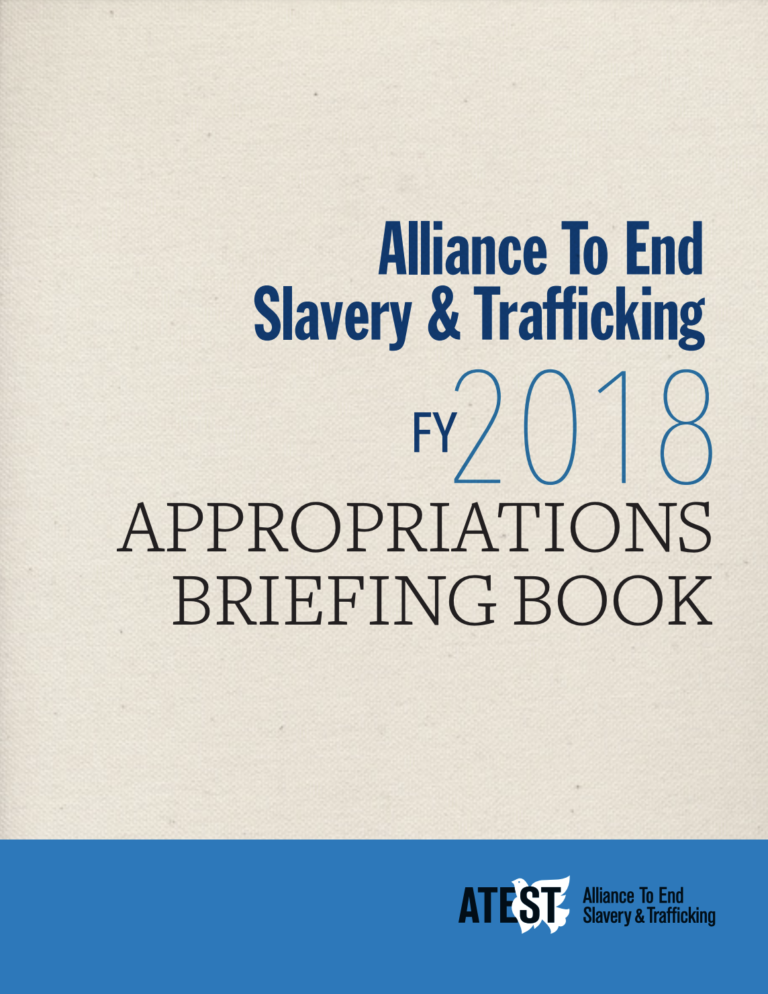This briefing book provides concrete recommendations from the Alliance to End Slavery and Trafficking (ATEST) that articulate how Congress can provide resources that are critical to ensure that the U.S. government is taking a comprehensive, victim-centered approach to prevent and address human trafficking and to support survivors’ paths to self-sufficiency. The scope of human trafficking and forced labor has come into sharp focus within the past few years. The International Labor Organization (ILO) conservatively estimates there are almost 21 million victims of human trafficking and forced labor worldwide at the time of this writing. Human trafficking is also one of the largest criminal enterprises in the world, generating an estimated more than $150 billion in profits to traffickers annually. Victims work in our agricultural fields, help construct buildings, provide domestic work in our homes, labor in the hospitality industry, and are forced into prostitution.
The federal appropriations process is a close collaboration among the executive branch and several congressional committees, involving a sequence of requests and negotiations before a final appropriations bill or set of bills are enacted into law. Due in part to the presidential transition, the appropriations process for Fiscal Year 2018 (FY 2018) has not followed regular order, and Congress is unlikely to pass twelve individual appropriations bills. Instead, Congress will likely consider a bill that combines all or some of the appropriations bills.
In sum, this guide provides funding recommendations to Congress to fight human trafficking. It can also be found through the Appropriations Guide section of ATEST’s website, here.

